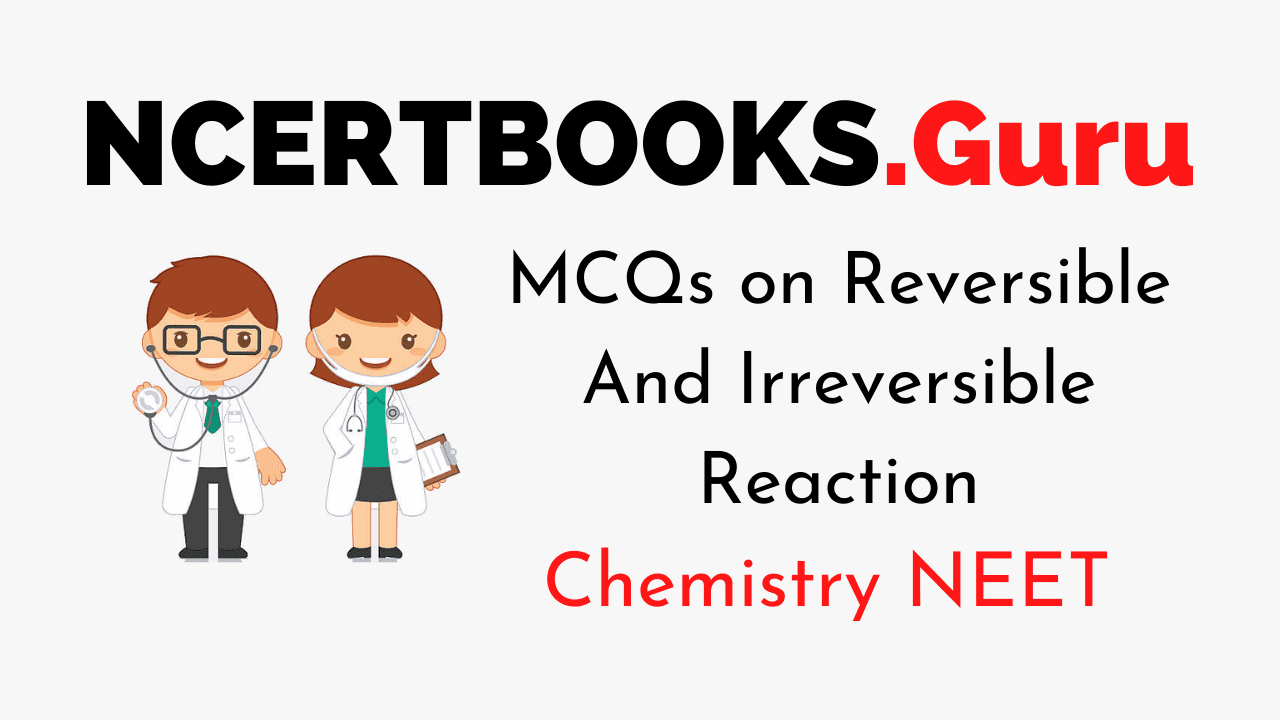NEET Chemistry is the scoring paper in the medical entrance examination. Here, you will discover the NEET Chemistry MCQ Questions for all Concepts as per the latest syllabus. Practice more on a regular basis with these NEET Chemistry objective questions on air pollution and improve your subject knowledge & problem-solving skills along with time management. NEET Chemistry Reversible And Irreversible Reaction Multiple Choice Questions make you feel confident in answering the question in the exam & increases your scores to high.
MCQs on Reversible And Irreversible Reaction
1. The net energy change in a reversible cyclic process is
(a) 3/2 RT
(b) zero
(c) always > 0
(d) always < 0
Answer
Answer: (b)
2. Which of the following is an extensive property?
(a) temperature
(b) pressure
(c) mass/volume ratio
(d) energy
Answer
Answer: (d)
3. Which of the following represents the largest amount of energy?
(a) 1 electron volt
(b) 1 erg
(c) 1 calorie
(d) 1 joule
Answer
Answer: (c)
4. Which of the following is correct for an adiabatic process?
(a) 𐤃E = q
(b) q = 0
(c) q = +w
(d) P𐤃 V = 0
Answer
Answer: (b)
5. The mixing of gases is generally accompanied by
(a) decrease in entropy
(b) a decrease in free energy
(c) change in heat content
(d) increase in free energy
Answer
Answer: (b)
6. One litre atmosphere is approximately equal o
(a) 101J
(b) 8.314J
(c) 931J
(d) 19.2J
Answer
Answer: (a)
7. The enthalpy change for a given reaction at 298K is -x J/mol. If the reaction occurs spontaneously at 298K the entropy change at that temperature
(a) can be negative but larger than x/298
(b) can be negative but smaller than x/298
(c) cannot be negative
(d) cannot be positive
Answer
Answer: (b)
8. The initial energy change (𐤃U) of a process does not depend upon
(a) amount of substance undergoing the change
(b) temperature
(c) path of the process
(d) nature of substance undergoing the change
Answer
Answer: (c)
9. Vibrational energy is
(a) partial potential and partly kinetic
(b) only potential
(c) only kinetic
(d) neither kinetic nor potential
Answer
Answer: (a)
10. The total entropy change for a system and its surroundings increases if a process is
(a) exothermic
(b) endothermic
(c) reversible
(d) irreversible
Answer
Answer: (d)
